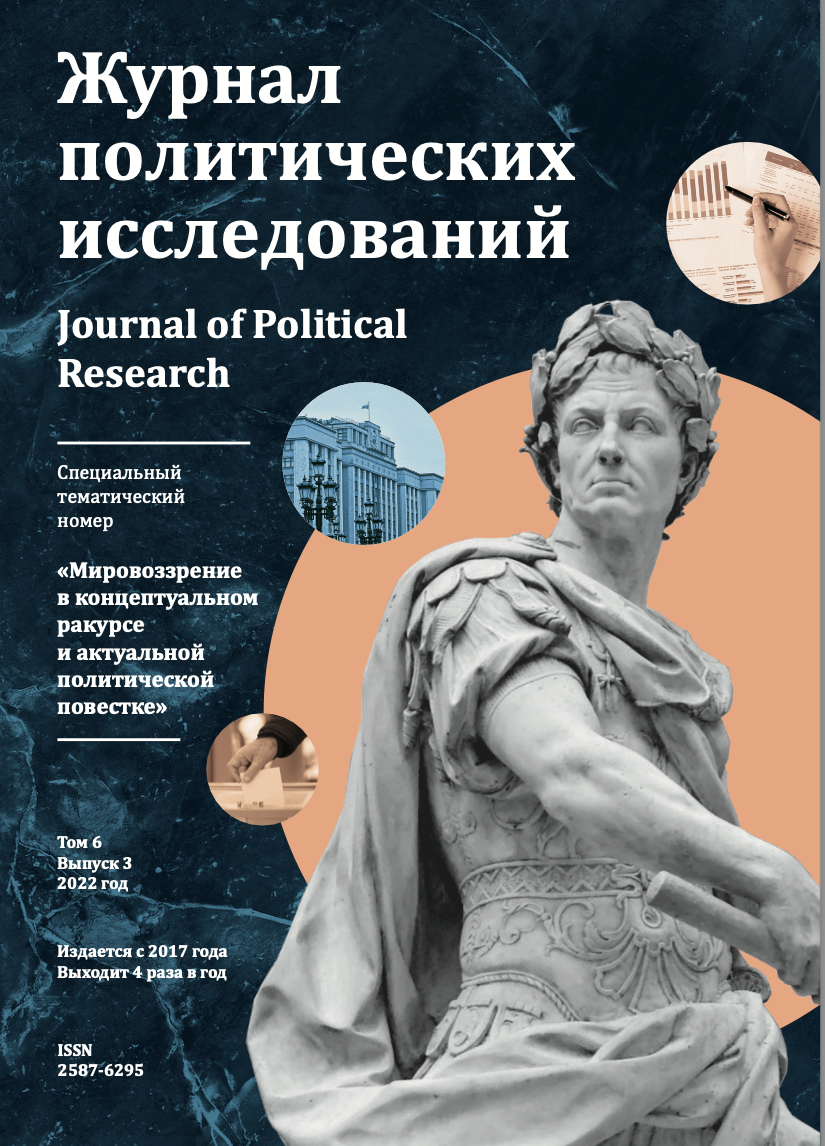Russian Federation
Russian Federation
The purpose of the article is to identify the cultural contexts of the mechanism of digital transformation of public administration within the boundaries of the Western and eastern models of the political process. The main research method is a comparative analysis of the mechanisms of public goal-setting, which are determined by the picture of the world, a set of meanings and priority values that set the behavior patterns of an individual and groups in different civilizations. Digitalization radically changes the system of power-society-personality relations, experiencing the influence of cultural constants, the consequences of which are considered on the example of Great Britain and Japan. The trajectories of the Western and eastern models of digital transformation of public administration are compared by the following markers: 1) technologies for the implementation of artificial intelligence in the public administration system; 2) the mechanism of managerial decision-making in the “artificial intelligence” system. 3) the transformation of the power-society relationship and its consequences. The variables influencing the content and algorithm of functioning of the digital government model, influencing the effectiveness of the use of artificial intelligence technologies introduced into the system of modern public administration, have been identified. The theoretical significance of the research is seen in the formation of a research matrix that takes into account the different rate of change in management practices and functions of institutions in different cultural environments during the transition to a digital management model. The practical relevance of the study consists in the formulation of recommendations that allow to identify effective practices for the implementation of artificial intelligence in the process of public administration, which are most often located at the junction of different cultures.
e-government, public administration, digitalization, artificial intelligence, political culture
1. Akatkin Yu.M., Jasinovskaja E.D. Tsifrovaya transformatsiya gosudarstvennogo upravleniya. Datatsentrichnost' i semanticheskaya interoperabel'nost' [Digital transformation of public administration. Data-centricity and semantic interoperability], Preprint [Preprint]. 2018, 48 p. (In Russia).
2. Almond G.A. Grazhdanskaya kul'tura (podhod k izucheniyu politicheskoy kul'tury) // Politiya. - 2010. - № 2 (57). - S. 122-144. EDN: https://elibrary.ru/TBEPHX
3. Davydova Yu.A. Iskusstvennyy intellekt v politicheskom upravlenii: tendencii i perspektivy // Zhurnal politicheskih issledovaniy. – 2023. – T. 7, № 4. – S. 100–113. DOI: https://doi.org/10.12737/2587-6295-2023-7-4-100-113; EDN: https://elibrary.ru/CTDXTA
4. Volodenkov S.V. Obraz cifrovogo buduschego kak model' konstituirovaniya real'nosti: scenarii formirovaniya i reprezentacii // Zhurnal politicheskih issledovaniy. – 2023. – T. 7. - № 4. – S. 33-46. DOI: https://doi.org/10.12737/2587-6295-2023-7-4-33-46; EDN: https://elibrary.ru/KYOZKC
5. Muhaev R.T. Modeli kommunikacii vlasti i obschestva v mehanizme publichnogo upravleniya sovremennoy Yaponii // Znanie. Ponimanie. Umenie. - 2016. - №2. - S. 178-198. DOI: https://doi.org/10.17805/zpu.2016.2.16; EDN: https://elibrary.ru/WEAPFD
6. Muhaev R.T. Politika v postmoderne: nabor praktik manipulyacii znakami // Mnogolikaya politika. Sbornik statey / pod red. R.T. Muhaeva. – M.: Izdatel'skie resheniya, 2019. S. 3-10. EDN: https://elibrary.ru/BZIYWL
7. Pay L. Nezapadnyy politicheskiy process // Politicheskaya nauka. - 2003. - №2. - S. 66-85. EDN: https://elibrary.ru/ESCGUH
8. Hantington S., Berger L. Mnogolikaya globalizaciya: kul'turnoe raznoobrazie v sovremennom mire / pod red. Pitera L. Bergera i S, Hantigtona; per. s angl. V.V. Sapova pod red. M.M. Lebedevoy. - Moskva: Aspekt Press, 2004. – 378 s.
9. Vsemirnyy bank. Gumanitarnyy portal. – 2003–2020. [Elektronnyy resurs]. URL: https://gtmarket.ru/organizations/ world-bank/info (data obrascheniya: 02.05.2023)
10. Reyting razvitiya elektronnogo pravitel'stva OON. – 2003–2020.
11. Reyting urovnya demokratii // The Economist Intelligence Unit. – 2006–2020. [Elektronnyy resurs]. URL: https:/ /www.eiu. com/n/ (data obrascheniya: 02.05.2020)
12. Reyting GRICS. Vsemirnyy bank. – 2004–2020. [Elektronnyy resurs] URL: https://databank.worldbank.org/ source/worldwide-governance-indicators# (data obrascheniya: 03.05.2023)
13. Almond G.A. Grazhdanskaya kul'tura (podkhod k izucheniyu politicheskoy kul'tury) [Civic culture (an approach to the study of political culture)], Politiya [Polity]. 2010, pp. 122-144. (In Russia).
14. Davydova Ju. A. Iskusstvennyj intellekt v politicheskom upravlenii: tendencii i perspektivy [Artificial intelligence in political management: trends and prospects], Zhurnal politicheskih issledovanij [Journal of Political Studies]. 2023, pp. 100-113. (In Russia).
15. Volodenkov S. V. Obraz cifrovogo budushhego kak model' konstituirovanija real'nosti: scenarii formirovanija i reprezentacii [The image of the digital future as a model of the constitution of reality: scenarios of formation and representation], Zhurnal politicheskih issledovanij [Journal of Political Studies]. 2023, pp. 33-46. (In Russia).
16. Mukhaev R.T. Modeli kommunikatsii vlasti i obshchestva v mekhanizme publichnogo upravleniya sovremennoy Yaponii [Models of communication between government and society in the mechanism of public administration in modern Japan], Znanie. Ponimanie. Umenie [Knowledge. Understanding. Ability]. 2016, pp. 178-198. (In Russia).
17. Mukhaev R.T. Politika v postmoderne: nabor praktik manipulyatsii znakami [Politics in Postmodernity: a set of sign manipulation practices], Mnogolikaya politika. Sbornik statey [A multifaceted policy. Collection of articles]. 2019, pp. 3-10. (In Russia).
18. Pay L. Nezapadnyy politicheskiy protsess [Non-Western political process], Polit. Nauka [Polit. Science]. 2003, pp. 66-85. (In Russia).
19. Hantington S., Berger L. [Kul'turnoe raznoobrazie v sovremennom mire. Mnogolikaja globalizacija]. Aspekt-Press. [Aspect-Press]. 2004, 378 p. (In Russia).
20. Vsemirnyy bank. Humanitarian Portal. Available at: https://gtmarket.ru/organizations/ world-bank/info. (Accessed: 02.05.2023.).
21. Reyting razvitiya elektronnogo pravitel'stva. The UN.
22. Reyting urovnya demokratii. The Economist Intelligence Unit. Available at: https://www.eiu. com/n/. (Accessed: 02.05.2020.).
23. Reyting GRICS. The World Bank. Available at: https://databank.worldbank.org/. (Accessed: 03.05.2023).




















